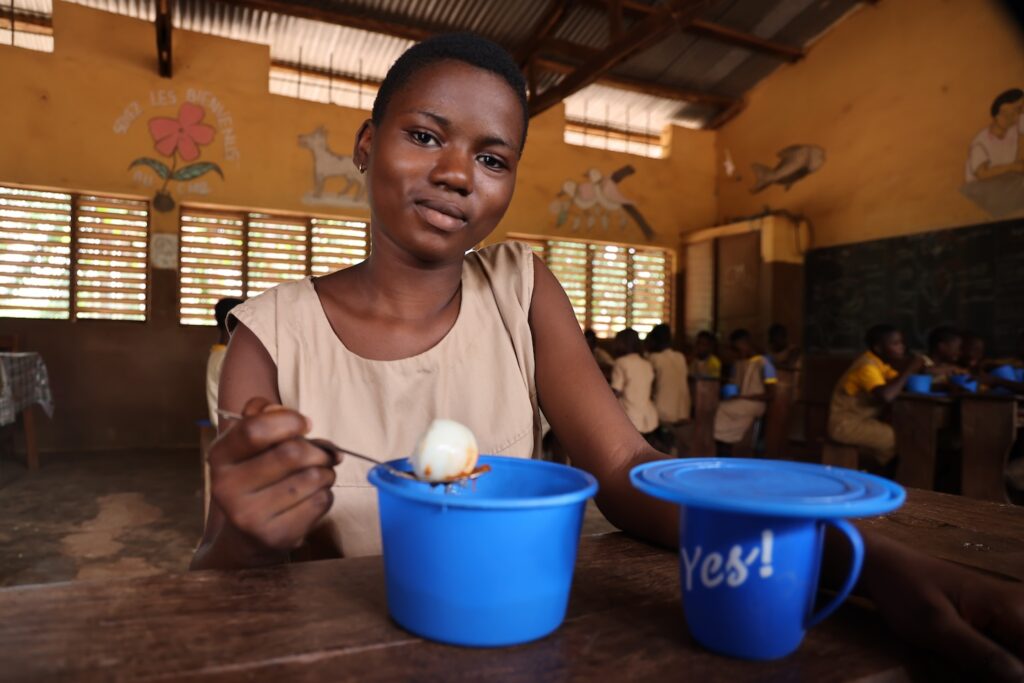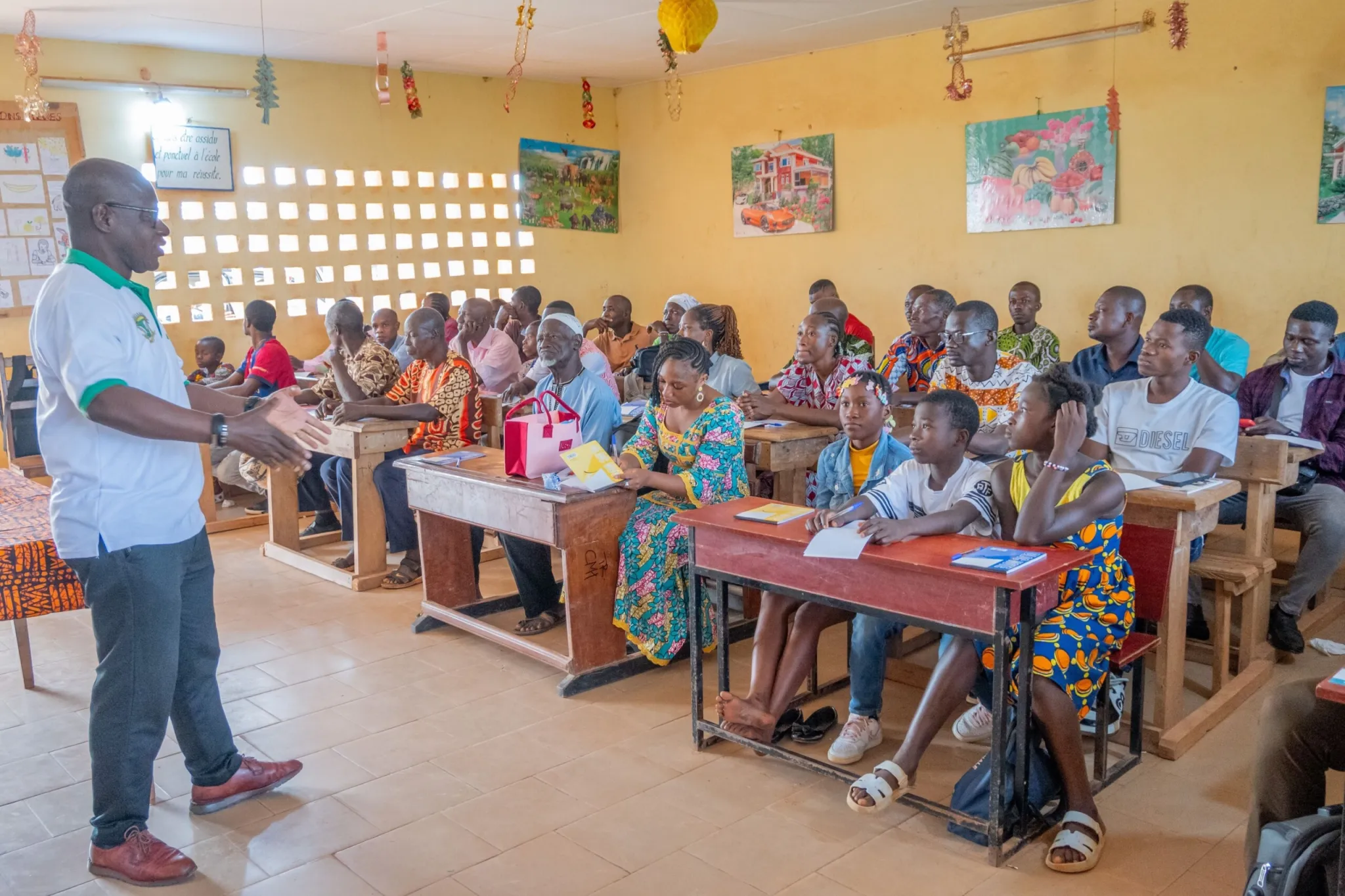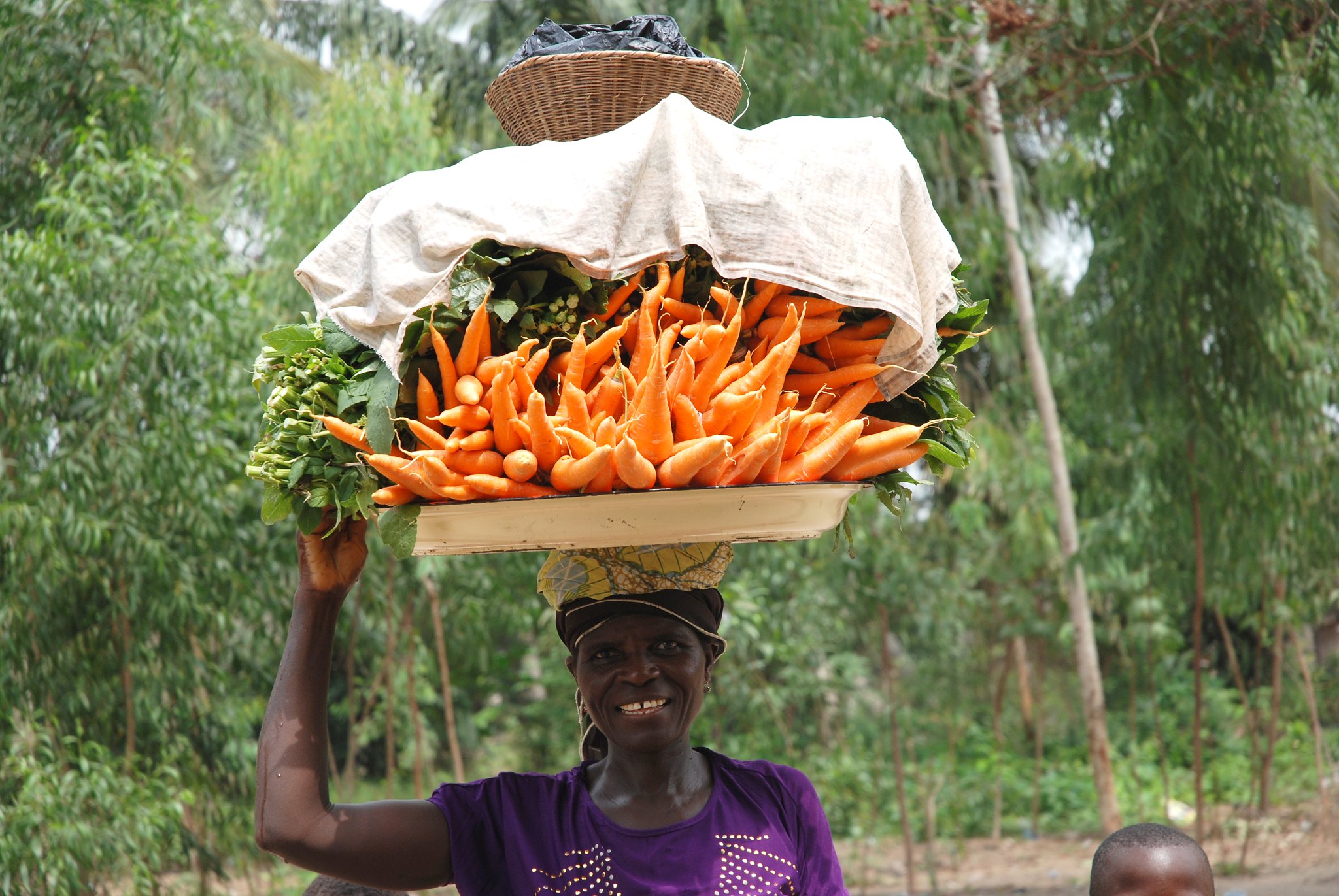A hand washes another hand. –African Proverb
The proverb captures a simple truth: One hand alone cannot complete the task. In development, it is a reminder that progress depends on shared effort between governments, communities, and development partners working toward a common purpose.
In Benin, this proverb is reflected in a country-led national school feeding programme, working in close concert with partners. Benin has emerged as one of Africa’s most inspiring examples of how strong national leadership and a domestic-first, partners-second approach can transform school feeding into a sustainable, nationally owned, managed, and financed programme.
Since launching the National Integrated School Feeding Programme (Programme National d’Alimentation Scolaire Intégré, or PNASI) in 2017, the government has demonstrated that partners naturally align when leadership is grounded in strong political commitment, guided by a clear vision and backed by concrete plans. Initially implemented by the World Food Programme (WFP) with funding from the Government of Benin, the PNASI has evolved over the past seven years from a partner-implemented initiative to one of full national ownership and management. This transition reached a milestone in September 2024, when PNASI programme management was formally transferred to the National Agency for Food and Nutrition (ANAN)—a new institution created two years ago under the Office of the President of the Republic of Benin to coordinate and facilitate the implementation of the programme.
From the outset, the government’s ambitions were clear. The PNASI was conceived as a flagship social safety net, a unifying programme that brings together education, social protection, agri-food systems, and climate action. Anchored in the Government Action Programme (PAG), the overarching vision is to have “one school, one canteen” by 2026. That vision goes beyond feeding children: It reimagines school meals as a long-term investment that nourishes children, strengthens rural livelihoods, creates jobs, and contributes to a more sustainable food system.
Benin is also leveraging the programme’s purchasing power to transform its food systems, creating opportunities for smallholder farmers to supply schools. Nearly 100% of the food has been sourced locally from 2025.

Benin’s Leadership: Financing Rooted in Political Will
He who is carried on another’s back does not appreciate how far off the town is. –African proverb
This proverb speaks to Benin’s domestic-first, partner-aligned approach to financing and delivering its school meals programme—an approach grounded in its strong political commitment and belief in self-reliance. The transfer to national ownership marked a turning point, signalling Benin’s decision to stand on its own feet, while continuing to welcome partners whose support aids the country’s journey toward a nationally owned, universal school meals programme.
Benin’s leadership in financing has been just as decisive. Since 2017, the government has progressively increased domestic investments in PNASI, reaching approximately US$50 million by 2024 (FCFA 29.96 billion). This level of funding has enabled the programme to provide daily meals to 1.4 million children, reaching a coverage of 80 percent. That level of coverage places Benin among the best-performing countries in Africa. The government has also committed to cover almost all the programme’s cost.
To achieve its funding targets, Benin has utilized innovative financing mechanisms such as tapping the Sustainable Development Goals (SDG) Eurobond. Between 2021 and 2023, the PNASI received US$100 million from the SDG bond resources, making it a pioneer in tapping resources from international capital markets for school meals. It is also exploring how local governments and communities can contribute resources according to their capacities, ensuring that ownership extends from the national to the local level.
Plan First, Partners Second
The cooperation between the Government of Benin and the Sustainable Financing Initiative (SFI) for School Health and Nutrition embodies a principle now taking root in global development cooperation: plan first, partners second. In this approach, governments lead with evidence-based plans with detailed cost estimates and partners align around them.
Together, the National Food and Nutrition Agency (ANAN) and the ministries of finance, development, local governance, education, and agriculture, with SFI’s support, put this principle into practice, using data and evidence to assess fiscal space, develop costing scenarios, and co-create a national financing plan. Through this collaboration, the Government of Benin estimated implementation costs over five years, modelled rural and urban financing scenarios, identified the cost of achieving universal coverage, and assessed how local authorities could contribute within their means.
This national financing plan now serves as the foundation of Benin’s domestic-first approach to financing, enabling the government to cover most programme costs while engaging development partners to fill funding gaps and strengthen programme quality.
The School Meals Coalition (SMC) and the Global Alliance Against Hunger and Poverty (Global Alliance) are now putting this principle into practice, with governments leading the development of national implementation plans that mobilize aligned and coordinated action. Through its collaboration with the Government of Benin, SFI supported the integration of the national financing plan into the Global Alliance’s broader national implementation plan. In this plan, the government expressed interest in financial support for capital investment to build new kitchens and technical support to foster connections between schools and local smallholders. Together, these two platforms serve as vehicles to align partners around country-led technical assistance and financing priorities.
Benin’s leadership offers a concrete example of how alignment can work in practice: Governments set the course and development partners walk shoulder-to-shoulder, not ahead. Its strong political commitment, coupled with strategic collaboration with partners like SFI and platforms like the SMC and Global Alliance, has mobilized development partners such as the Islamic Development Bank, Germany, and the Netherlands to see how they can complement Benin’s domestic financing efforts.
Self-reliance and Solidarity: Two Hands that Strengthen Each Other
When you rise, remember those who helped you climb. –African proverb
Benin’s vision is clear: universal coverage of school meals by 2026. With a robust financing plan, cross-sector partnerships, and growing local engagement, the country is on track to achieve it.
As Benin advances toward universal coverage, it recognizes the hands that have supported its climb. The platforms and development partners have contributed technical expertise, financing, and encouragement, strengthening Benin’s resolve to lead.
Benin’s journey is more than a success story in school meals financing – it is a reimagining of what partnership looks like. It shows that a domestic-first approach need not mean solitude, and international cooperation need not mean aid dependence. Transformational change occurs when national ambition and plans meet solidarity-based partnerships, where governments lead with clear visions and plans, and partners align with shared purpose.
A hand washes another hand—but both hands must reach out.
This blog was developed in collaboration with the National Agency for Food and Nutrition (ANAN) of Benin.
Photos: WFP/Bismarck Sossa


